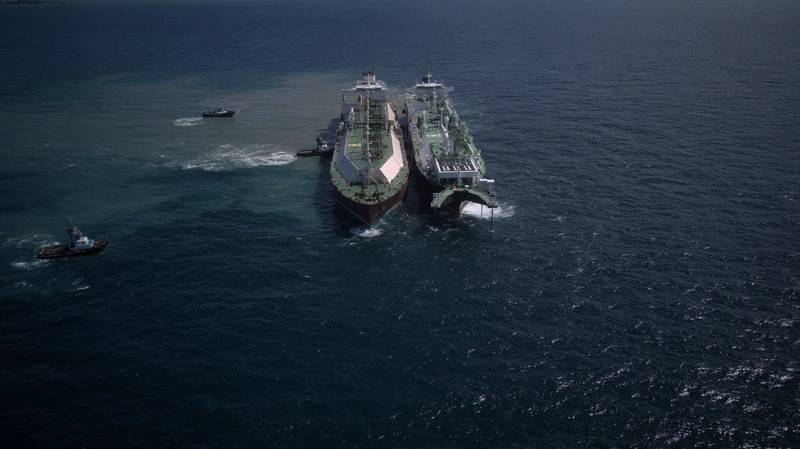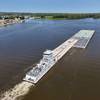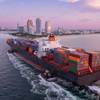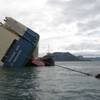'Unprecedented' Ship-to-ship LNG Transfer Off Brazil
Wilson Sons, through its Towage unit, participated in the first ship-to-ship offshore operation for the transfer of liquefied natural gas (LNG) through a ULGC (Ultra Large Gas Carrier) vessel of Q-FLEX type in Brazil. The ship is considered one of the largest gas carriers in the world with a capacity of 215,000 cubic meters.
This unprecedented operation took place at the Celse’s terminal, in Barra dos Coqueiros (SE), and aimed to supply the Porto de Sergipe Thermoelectric Power Plant (UTE), operated by the company. The UTE was activated in July by the National Electric System Operator (ONS), and Celse has two more operations in its planning until September, also through Q-FLEX type ships. At this first moment, the thermoelectric plant is being activated by the ONS for continuous and uninterrupted dispatch for four months, but there is the possibility of, by the end of the year, totaling eight more operations for supply.
Four Wilson Sons’ tugboats supported the maneuvers of the gas carrier for the transfer of LNG to the Floating Storage Regasification Unit (FSRU). Elísio Dourado, commercial director of the Company's Towage division, explains that two ship-to-ship transfer operations were necessary to complete the fuel transfer process.
"The gas carrier initially unloaded about 2/3 of the cargo. Then, it waited at anchor, while the FSRU transferred the gas to the thermoelectric plant," says Elísio. "After this time, a new mooring was performed to unload the rest of the cargo," he adds. All in all, the tugboats performed four maneuvers.
"Ship-to-ship operations with large vessels are complex and require a high level of safety. Therefore, we need to count on partners that we have total confidence on and that guarantee the quality that we value so much. The choice for Wilson Sons is an example of this", says Lucas Buranelli, manager of LNG terminal operations at Celse.
With a fleet of 80 tugboats, the largest in Brazil, Wilson Sons is present in 25 locations, covering almost all the Brazilian coast. The Company also has the Towage Operations Center (COR), which monitors the vessels 24 hours a day, 365 days a year, in 25 ports along the Brazilian coast, in addition to the Maritime Improvement Center (CAM) where periodic training of crews and campaigns are conducted for specific projects for customers and other stakeholders, through the Wilson Sons' own maneuver simulator that is able to offer different operational scenarios.
 (Photo: Wilson Sons)
(Photo: Wilson Sons)














